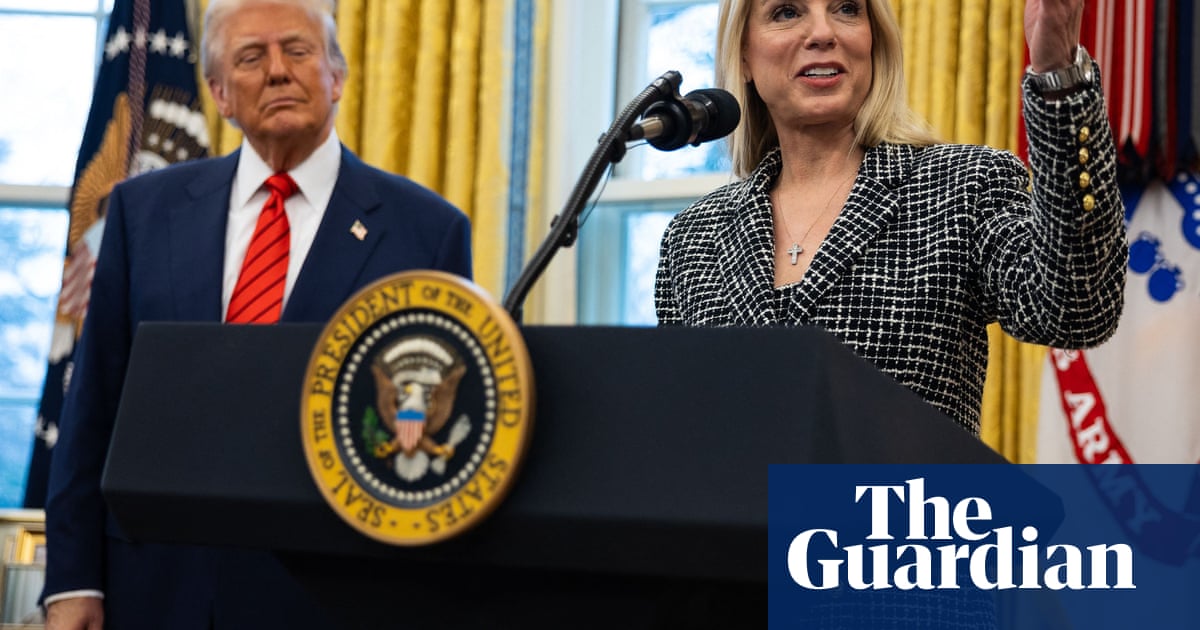Federal judges are discussing a proposal that would shift the armed security personnel responsible for their safety away from the Department of Justice (DoJ) and under their own control, as fears mount that theTrump administrationis failing to protect them from a rising tide of hostility.
TheWall Street Journal revealedon Sunday that the idea of creating their own armed security detail emerged at a meeting of about 50 federal judges two months ago. A security committee at the twice-yearly judicial conference, a policymaking body for federal judges, raised concerns about the increasing number of threats against judges following Trump’srelentless criticismof court rulings against his policies.
Under the current system, federal judges are protected by the US marshals service, which is managed by the justice department. According to Wall Street Journal, those participating at the March conference expressed worries that Trump might instruct the marshals to withdraw security protection from a judge who ruled against him.
Amid those anxieties, the idea surfaced that federal judges should form their own armed security force. That would involve bringing the US marshals service under the direct control of the head of the judiciary, Chief Justice John Roberts.
At present, marshals fall under the remit ofPam Bondi, the US attorney general. Bondi was appointed by the president and is a Trump loyalist.
She has made clear she will be guided by him – breaking a decades-long norm that kept the White House at arm’s length from the DoJ to ensure law enforcement and prosecutorial independence.
John Coughenour, a federal judge in the western district of Washington, told the Journal that he thought the transfer of the marshals out of Trump’s and into judicial control was a “wonderful idea”. He added: “There’s never been any reason in the 43 years that I’ve been on the bench to worry that the marshals service would do whatever was appropriate – until recent years.”
Coughenour is one of a growing number of judges who have faced security threats in the wake of Trump’s deluge of invective. In February the judge issuedan orderblocking Trump’s attempt to end birthright citizenship for children born on US soil to parents lacking legal status in the country.
The judge was then targeted by a swatting attack, where a fake alarm is called into police and a Swat team sent out to the individual’s home.
Senior Democrats havedemanded an investigationinto a spate of dozens of pizza deliveries to the homes of federal judges. The actions are seen as intimidatory, as it shows judges that their private addresses are known.
Federal judges have found themselves on the front lines of constitutional battles over Trump’s executive orders over such contentious issues as birthright citizenship, the mass deportation of undocumented immigrants, and the dismissal of tens of thousands of federal employees. So far there have been 249 legal challenges to Trump administration actions, according to aJust Security tracker.
Trump has used his social media platform Truth Social to lash out at named judges who have blocked his policies on grounds that they violate the US constitution or law. When Judge James Boasberg objected to the deportation of Venezuelans to El Salvador in the absence of due process, the presidentcalled hima “radical left lunatic” and said he should be impeached. Boasberg was first appointed to the federal bench by Republican George W Bush.
The White House provided the Journal with a statement from the justice department. It said that marshals would “continue to protect the safety and security of federal judges” and that any other suggestion was “absurd”.
